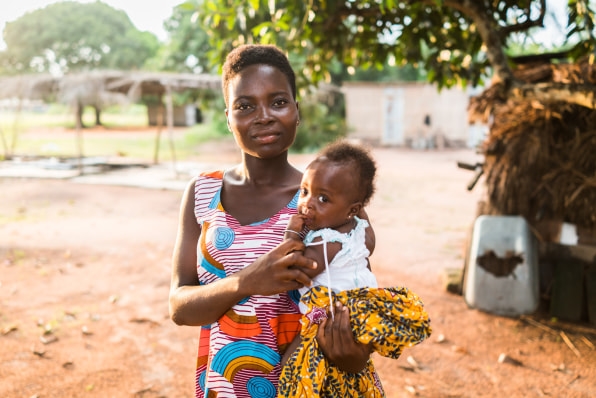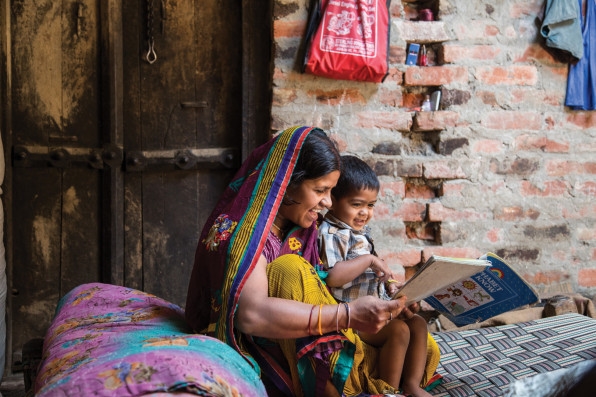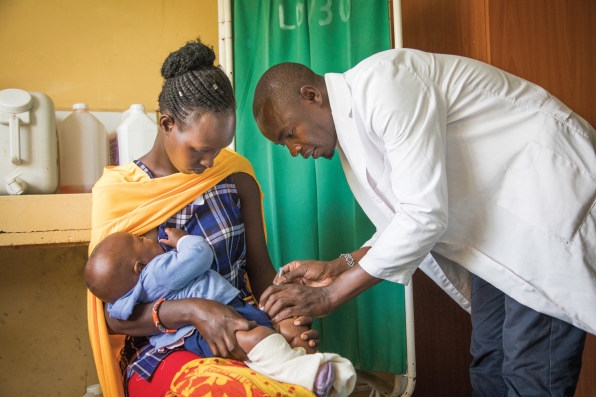It probably won’t surprise you to learn that tech mogul and billionaire philanthropist Bill Gates views the world mathematically. When it comes to making change, for instance, he watches metrics like child mortality to spot improving health and school attendance to track access to education.
As a philanthropist, he’s obsessed with seeing those averages improve because they boost what he calls “human capital”—people’s ability to lift themselves up despite adversity. But he’s also focused on how they can be deceiving.
Take the following statistic: 99% of people in low and middle-income countries are seeing year-over-year improvements in child mortality and schooling. That sounds great, but the world is a big place and improvements happen unevenly. Roughly one in 15 people don’t have access to basic healthcare or educational services. They’re usually clustered in areas already experiencing poverty with women especially marginalized.

Gates wants to see more investment in the places that are falling furthest behind, and more efforts to empower women, especially in those spots. To do that, he’s open-sourced his math: The Gates Foundation has publicly released these findings in its 2019 Goalkeepers Data Report to coincide with UN General Assembly Week in New York. It’s the third year for the report, which tracks global progress toward the United Nations’ Sustainable Development Goals, a series of statistical benchmarks that the world’s countries planned to hit by 2030 (and toward which progress has somewhat stalled).
This year’s report from Gates focuses on these spots of inequality. On the most basic level, there are still large gaps between countries in the developed and developing world. In Chad, for instance, there are more children dying per day than die in Finland over an entire year. The average kid in Chad won’t ever finish primary school, while the average kid in Finland will go to college. In the coming years, countries along the equator are likely to be hit hardest by climate change, even though many rely on subsistence farming and didn’t contribute “in any meaningful way” to that problem in the first place.
“Where you live shouldn’t determine the life you lead,” adds Sue Desmond-Hellmann, the CEO of the Gates Foundation. “We say that nobody’s life should be a roll of the dice.”
“In some ways it’s very impressive to see that in almost every location, not just to the country level, but even down within the country—at the sub-national level or what we call ‘districts’—we are seeing progress on two of the most important metrics, which is reducing childhood mortality and increasing the number of years of schooling,” says Gates.
But zoom in closer and there are more complications. In the report, districts serve as a proxy for what the U.S. calls counties. Even in some countries that should be lauded for improvement, there are massive disparities between districts that can be ignored when you look at country-level stats. Gates says to look at Nigeria and India, where, he says “the districts that are the worst off are some of the toughest in the world, and the districts that are well off are actually almost exceeding developed country success.”

In India’s Kollam district, in the state of Kerala, the average person received 14 years of education and had a mortality rate for young children of just 1%. In India’s Budaun district in the state of Uttar Pradesh, most kids get just six years of schooling, and their mortality rate shoots up to 8%.
Things are equally bright and bleak in Nigeria, where the residents of the thriving Ado-Ekiti district receive more than 12 years of school. In Garki, which is located in a different state, they get five. “Even within countries, spreading best practices is going to make a big difference,” Gates says.
As part of the report’s push toward getting closer to hitting the SDGs, the Gates Foundation suggests countries refocus on society-improving concepts like primary healthcare, digital inclusion, and climate adaptation. In Ethiopia and Rwanda, for instance, the government has been prioritizing the creation of a universal healthcare system that offers some basic services to all communities. While these countries have very little to spend, they thought about how to maximize their efforts by training thousands of women to be community healthcare workers, who help people when they’re sick, but who also push for better hygiene practice and encourage immunization.

On the digital inclusion front, it cites a program in India that changed how the government helps people get natural gas to heat their homes. Previously, the government subsidized the cost of natural gas, but this led to inequity: Wealthy people could simply buy more cheap gas. Instead of offsetting the market price, the country began a new program, which created bank accounts for the poor that they could access via mobile phones and were protected by biometric identification (to avoid fraud). Now, when people buy natural gas, a credit is applied to their account after purchase. With the savings from not subsidizing an entire industry, the government funded a program that lowers the costs of buying and hooking up a gas stove in the first place. Natural gas stoves aren’t great for climate change, but for women who previously had to spend hours gathering firewood and suffered health issues from the smoke in their homes, a gas stove can be a life-changing intervention.
For climate adaptation, the report cites Ethiopia, which has been financing agriculture-related public works projects that both offer employment and help subsistence farmers store and conserve, practices that have become even more vital as climate change has made rainfall more unpredictable. It’s also put more resources into agriculture extension programs that can predict weather patterns and help farmers prepare for the unexpected.
“These aren’t rich countries,” adds Desmond-Hellmann. “And they’ve achieved progress with a model that can be adopted for limited budgets. So those kinds of things are meant to make this come to life for policy makers who do have limited resources. . . . Even countries who feel like they’re getting it right need to look at an inequity within their country.”
(26)